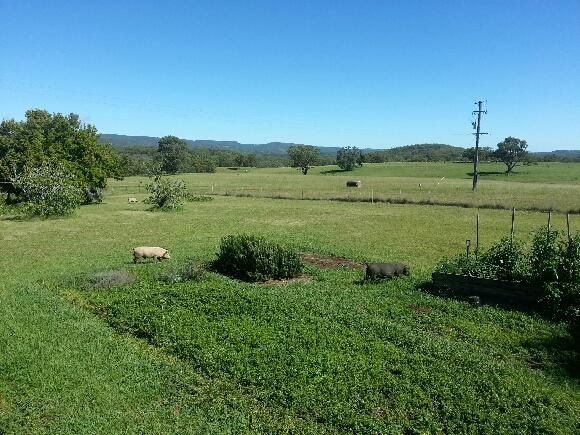
A Wonderful Wet New Year
If this month is anything to go by, the year will be over next week. With a day to spare, my late entry into this newsletter is making my wife work late on a Friday night… while away for the weekend. I’m walking a fine line…and for that I apologise, but it is with great joy I can say the farm has had a great start to the New Year.
With some 150mm of rain since the white bearded man with a ‘Christmas Tummy’ ate the Christmas cake, our native grasses have produced some good bulk, with all the rain soaking in. The stock are on the ‘up’ after a dry spell, and now with Winter in mind we are planting crops for grazing though the ‘feed gap’.
With even more awareness in the public regarding farm practices we have been answering many questions about our methods on farm and those of our suppliers. One question that always arises is, “Why aren’t we organic?”. I generally take a big breath and say, “Organics doesn’t suit all environments, and all situations especially considering the recent changes in climate. We make decisions based on each situation and the prevalent conditions, considering sustainability and the ecosystems within the environment.”
That generally pulls the conversation up. But many times it has gone the other way… With the timing of this rain, an example of our thinking applies. In a nutshell, native summer grasses grow during the summer, go to seed, lose nutrients and die off coming into winter. There are native winter grasses, but the bulk of our native feed is grown during the summer, when the majority of our rain should fall. For all animals, especially when trying to finish stock, good quality nutrients are needed by access to growing green grass. One method of providing this grass during the feed gap (when the summer feed dies off and before it starts again in the warmer weather) is to plant pasture for fodder like oats, barley, forage sorghum and wheat.
The Process
Before we plant a crop, we heavily graze the chosen paddocks to make use of the current grasses. We then use a herbicide to kill the remaining grasses and give the crop the start it needs (with the least competition for the moisture and the nutrients) to become a viable crop. The use of herbicide and its negative impacts are far outweighed on the other 90% of the farm under native pastures. By planting the crop we will alleviate the feed pressure on the remaining paddocks in the hope that with further rain, they can rest and rejuvenate. A full tummy of good feed is what our stock need during what can be a cold and harsh winter
I hope the good times of this farming season are at your house in the city too, and that you all had full tummies with your families at Christmas. I must admit that my ‘Christmas tummy’ is still here…the white bearded man may not have eaten the Christmas cake after all.

